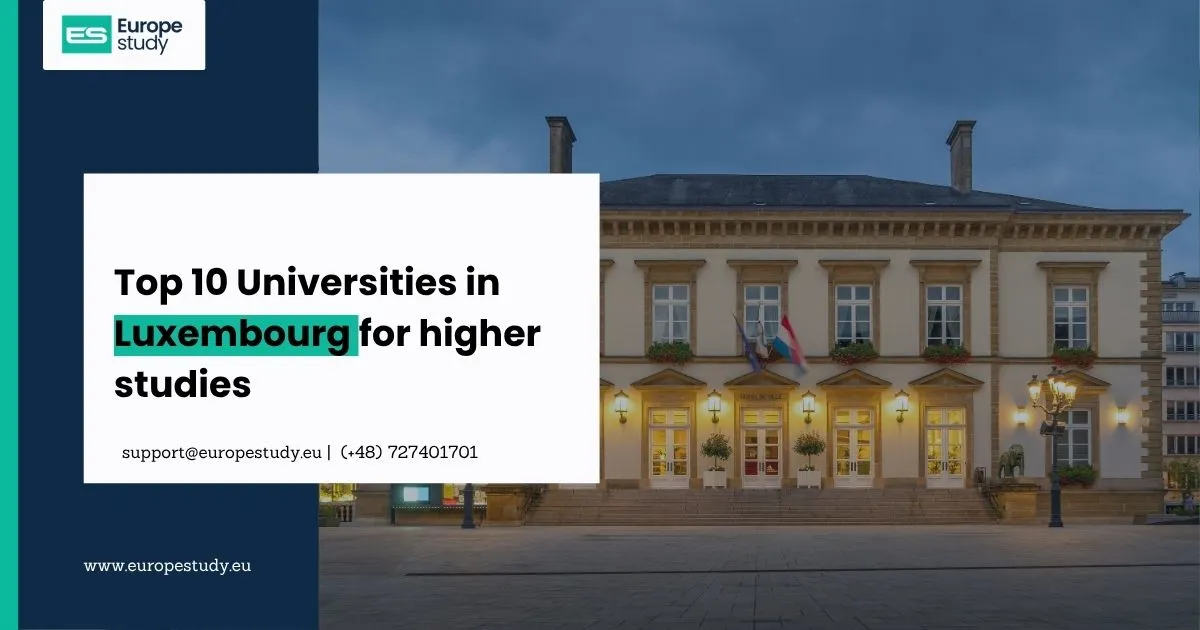
What is the Student Culture Like in Estonia?
Estonia, a small country located in Northern Europe, has become increasingly popular among international students seeking high-quality education in a vibrant and unique environment. With its growing tech industry, rich cultural history, and student-friendly atmosphere, Estonia offers much more than just an academic experience. The “student culture” in Estonia is an exciting blend of academic excellence, social engagement, and a sense of community, making it an ideal destination for those looking to grow both personally and professionally.
In this blog post, we’ll explore what life is really like for students in Estonia, from the social aspects to the academic environment, and how international students can make the most of their time in this fascinating Baltic nation.
1. The Academic Environment: A Blend of Tradition and Innovation
Estonia’s educational system is one of the best in Europe, especially when it comes to technology and digital learning. The country is known for its innovative teaching methods and strong emphasis on e-learning, and this is reflected in the student culture.
Universities in Estonia, such as the University of Tartu and Tallinn University of Technology, are well-respected across Europe and internationally. The academic environment in Estonia encourages critical thinking, independence, and creativity. Students often have a more hands-on approach to learning and can access state-of-the-art facilities that are particularly focused on technology, science, and research.
Estonian students are known for being intellectually curious and passionate about their studies. The culture is one of mutual respect, where both professors and students engage in open dialogue, with a strong emphasis on collaboration.
For international students, Estonian universities offer a high level of academic support, including English-language courses, which cater to a wide range of academic disciplines. The universities also make efforts to integrate international students into the local academic culture, making the transition smoother.
2. Student Organizations and Events: A Community-Focused Atmosphere
One of the most defining aspects of student culture in Estonia is the wide array of student organizations and clubs that are an integral part of university life. These student organizations are key to building a sense of community and belonging among students, both domestic and international.
In Estonia, student organizations aren't just about academics; they often include a diverse range of social, cultural, and recreational activities. Whether you’re into music, sports, photography, or environmental activism, there’s a group for everyone. International students often join organizations dedicated to helping them integrate into Estonian society or to connect with students from similar backgrounds.
Tallinn and Tartu, the two largest student cities, are particularly vibrant in this sense. In these cities, you’ll find regular student events like cultural nights, career fairs, student festivals, and concerts. These events help students connect with one another, network with potential employers, and experience the local culture in a fun, informal setting.
Estonian students also have a tradition of hosting student parties and themed gatherings throughout the year, such as “Vappu” (May Day celebrations) and “Mõõdikuud” (students’ graduation celebrations). These events are a great way to meet new people, practice the Estonian language, and enjoy a laid-back atmosphere with friends.
3. The Social Scene: A Mix of Quiet and Fun
While Estonia may not have the same reputation for wild nightlife as some other European countries, it offers a chilled but vibrant social scene that students can enjoy. Tallinn and Tartu, in particular, are home to a variety of pubs, bars, and cafes where students can hang out and socialize with their peers. The local coffee shops are also popular spots for students to meet and study in a cozy atmosphere.
The Estonian sauna is also an important part of the culture, and many students participate in sauna evenings or weekend getaways, which offer a chance to unwind and bond with friends. It’s an experience you shouldn’t miss, as the sauna is deeply ingrained in Estonian social life and offers a unique way to connect with others.
For those who enjoy outdoor activities, Estonia’s natural beauty offers a host of opportunities. The country is home to pristine forests, lakes, and islands that make for great weekend getaways. Hiking, camping, and nature walks are popular among Estonian students, especially during the warmer months. In winter, students take advantage of the season to engage in winter sports like skiing, snowboarding, and ice skating.
Although the Estonian social scene may not always be as fast-paced or extravagant as other European capitals, it’s intimate, authentic, and encourages deep connections rather than superficial socializing.
4. Language: An Important, But Not Overwhelming, Factor
Although Estonian is the official language of the country, English is widely spoken in Estonia, particularly among students and the younger population. Many Estonian students are fluent in English, and you’ll find that most universities offer courses in English, making it easy for international students to integrate.
That being said, learning a bit of Estonian is highly recommended if you want to get a deeper understanding of the culture and build stronger connections with local students. Estonians are generally friendly and open to helping international students learn their language. Many students participate in language exchange programs or attend language courses offered by universities or local cultural centers.
5. Work-Life Balance: A Healthy Mix of Studying and Leisure
Estonia places a strong emphasis on maintaining a healthy work-life balance. While students are expected to take their studies seriously, there’s also an understanding that mental and physical well-being are important.
Unlike some countries where students may feel constant pressure to perform, Estonian student culture is more relaxed, and there is a significant emphasis on enjoying life outside of school. This can be seen in the numerous events organized by universities, the availability of student discounts, and the focus on mental health and well-being within the academic environment.
Many students also take part in part-time jobs, and Estonia has a strong work ethic, which is reflected in the student culture. Students often find work in tech startups, cafes, or even internships that complement their academic interests. Having a part-time job is not only a way to earn extra money but also an opportunity to gain practical experience and meet new people.
6. International Students: An Integrated Part of the Student Community
Estonia has increasingly become a popular destination for international students, and the student culture is very welcoming to people from different backgrounds. Universities in Estonia actively encourage cultural exchange and often host events specifically aimed at helping international students adjust to life in Estonia.
There are various groups and activities tailored to international students, such as buddy programs, where local students help newcomers adjust to university life, and cultural orientation sessions. These initiatives make it easy for international students to make friends and feel at home in Estonia.
Many international students also form their own communities and hold cultural nights, food festivals, and other social events that celebrate their home countries. This mix of local and international students creates a vibrant and diverse campus environment.
7. Estonian Student Traditions: Rituals, Celebrations, and More
Estonia has its own set of student traditions that are both unique and fun. One of the most famous traditions is the Student Day (or Tudengipäev), which is celebrated with various activities such as concerts, picnics, and parties. This event is particularly important in cities like Tartu, where students take to the streets dressed in their university colors to celebrate their student identity.
Another significant tradition is the academic dress worn during important events, such as graduation ceremonies. Estonian students also often wear student caps (called “tudengimüts”) during these occasions, which symbolize the achievements and milestones of their academic journey.
Conclusion: A Student Culture Full of Opportunities and Community
Student culture in Estonia is a vibrant mix of academic rigor, social connection, and personal growth. Whether you’re studying in Tallinn or Tartu, you’ll find a welcoming environment filled with opportunities to engage with local students, explore the outdoors, and take part in unique cultural traditions. Estonia’s balance of work and play, combined with its innovative academic environment, creates a student experience that is both enriching and enjoyable.
So, if you're thinking about studying in Estonia, you’re in for more than just a great education—you’re about to experience a student culture that’s supportive, diverse, and full of opportunities to grow both academically and socially.





